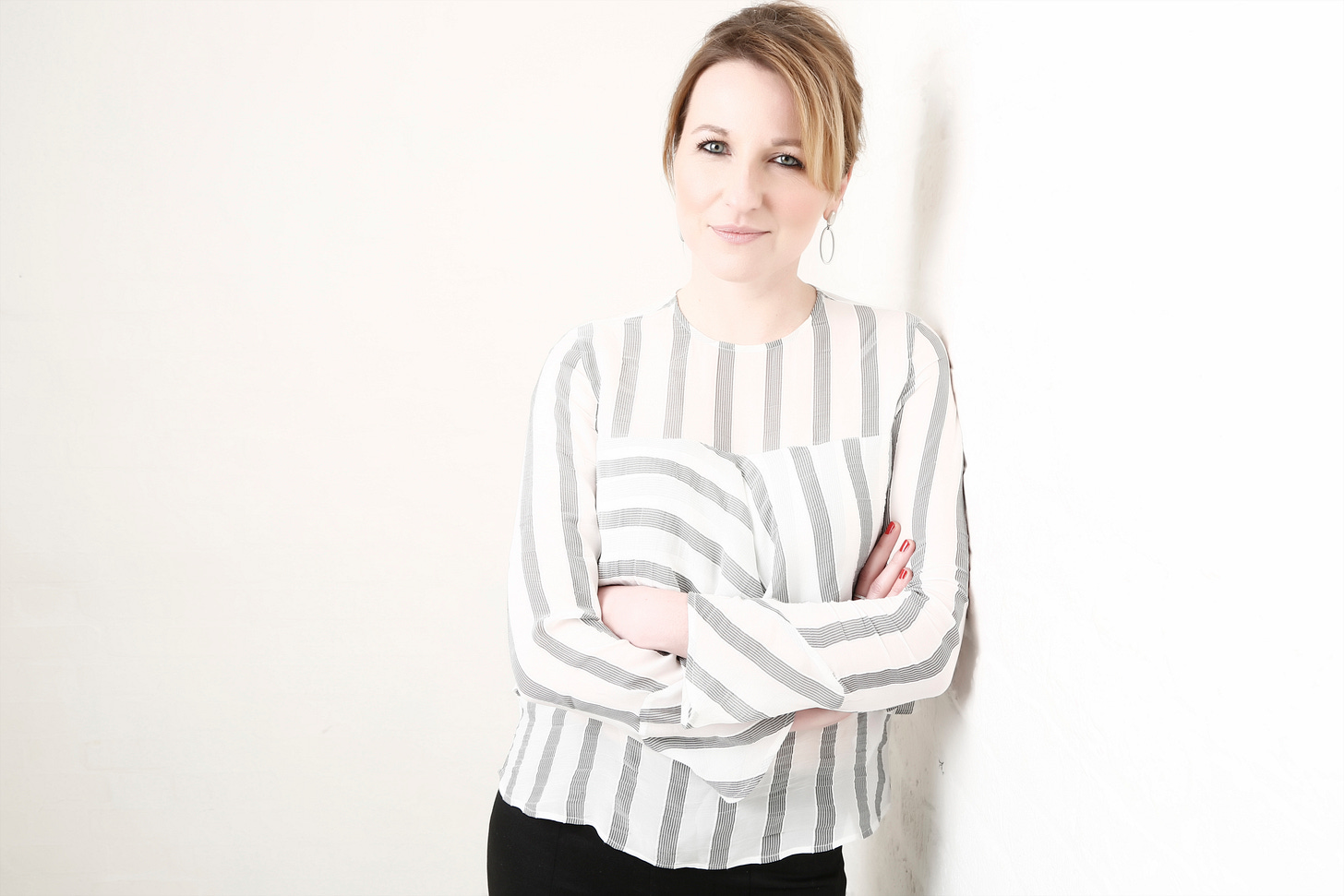Weekly newsletter for women who want to be smart about money: financial news, personal finance and investing
Welcome to our #25 weekly newsletter in 2020.
Every week we curate key articles and content so you can stay informed and inspired about money and investing.
We apply a female-lens to news and content about money and investing so that it is more meaningful to you.
Stay in the know. Keep on top of global economic, financial and investing news and trends. And read about what this means for you and your money in 2020 during Covid-19 and beyond.
If you’re short on time, listen to the editorial on audio for a brief overview.
“When we take money matters into our own hands, we can live life on our terms”
-Jana Hlistova

Source: Andrew Neel
From The Purse…
Editorial from the Founder
A leading economic forecaster is predicting the UK economy will shrink by 8% this year and will not fully recover until 2023.
However Morgan Stanley has said that the global economy is on track for a V-shaped recovery: they predict a ‘sharp but short’ recession ending by 2021 as global economies grow back to their pre-pandemic levels.
Even if a second wave of virus cases emerges, Morgan Stanley believes that selective lockdowns will keep the world from re-entering the strict lockdowns again.
In the UK, retail sales rebound 12% in May-far more than expected, as consumers have continued to spend on home improvements and buy online.
However the number of UK workers on payroll fell by more than 600,000 between March and May and unemployment is now at 3.9%.
The Bank of England (BoE) continues to print more money to support the UK economy through the pandemic crisis. The UK government debt was 100% of GDP in May.
In the US, the Federal Reserve is now buying individual corporate bonds to support the credit markets.
And according to a Bloomberg report, the Donald Trump administration is preparing a $1 trillion infrastructure proposal to help spur the US economy.
We spotlight ESG funds and how their performance compares to conventional funds.
A new study indicates that women are suffering more from ‘lockdown loneliness’ compared to men.
And some good news: Melinda Gates and her company Pivotal Ventures has launched an Equality Can’t Wait challenge: up to $30m will be awarded to expand women’s power and influence in the US by 2030.
Did you know that women in the UK now drink 40 million more glasses of whisky a year than they did in 2010? That’s a 15% rise compared with a decline of 6% among men.
Don’t forget to watch the TED talk on how the stock market works and check out the Coffee break section about why your personality is not permanent and how you can change this over your lifetime.
Stay safe, look after yourself and your loved ones.
I hope you enjoy this week’s newsletter. Until next week!
Jana
The Big Picture
Global markets and economy news, trends and indicators
The Coronavirus Effect:
The EY report warns that consumer spending could fall by 17% in the second quarter and by 8.7% over the year as a whole, before rebounding in 2021.
The EY Item Club forecast total investment to fall by 13.7% in 2020, however according to a separate report by the Social Market Foundation (SMF), pension reform can pave the wave for a ‘green recovery’.
SMF argues that ministers should encourage UK pension funds to merge into “superfunds” able to invest large sums in long-term projects such as building roads and communication networks.
UK inflation fell to 0.5% in May from 0.8% in April due to the falling price of petrol, toys and games. However food prices rose by 1.6% in the year to May while alcoholic drink was 2.4% more expensive.
The fall in inflation had been expected by the Bank of England (BoE) which us why more support for demand is required by 'pumping more money’ into the economy.
UK retail sales rebound more than expected ie at 12% in May (which is well above the predicted 5.7%).
Consumers are spending on home improvements and online spending increased nearly 20% in May (compared to April) pushing the share spent online to the highest on record at 33.4%
The number of UK workers on payroll fell by more than 600,000 between March and May. Meanwhile people claiming unemployment benefits increased more than 126% to 2.8m.

The Bank of England (BoE) will continue to print money to support the UK economy through the pandemic crisis: it will increase its quantitative easing (QE) by £100bn. In May, government debt climbed to 100% of GDP.
QE has increased from £200bn in 2009 to £745bn today.
This is helping to channel ‘cheap money’ to high street banks who are lending to UK’s hard pressed corporate sector.
There is huge appetite for borrowing in order to keep businesses afloat and even expand as lockdown eases.
This shows that the Fed will support the credit markets through the pandemic crisis.
States in the reopening process including Alabama, California, Florida and North Carolina are reporting a rise in new daily coronavirus cases.
Meanwhile the New York governor has warned against triggering a second wave of coronavirus.
In the US, retail sales surged 17.7% in May
This is more than double the economists expected meaning that the US could be on track for a strong rebound from the pandemic crisis.
According to a Bloomberg report, Donald Trump’s administration is preparing a $1 trillion infrastructure proposal to spur the US economy.
This could be another indicator that the US economy is headed for a V-shaped recovery.
Global stocks gained $1.7trn in market cap last week on fresh stimulus; central banks continue to pump money into the the global economy.
Looking Ahead in 2020/2021
Morgan Stanley are forecasting a V-shaped recovery for the global economy.
They predict a ‘sharp but short’ recession ending by 2021 as global economies grow back to their pre-pandemic levels.
The firm believes that the global economy is entering a ‘new expansionary phase’.
World GDP will bottom out at 8.6% in the second quarter (April-June) before bouncing back to 3% growth in 2021.
Even if a second wave of virus cases emerges, Morgan Stanley sees selective lockdowns keeping the world from re-entering strict lockdowns.
Although JPMorgan analyst Marko Kolanovic toned down his bullishness on the stock market in May because of rising tensions between China and the US, and growing social unrest across the US due to the death of George Floyd.
The bank is not concerned the US economy will shut down again because the modest increase in cases over the past week could be related to higher testing rates, backlogs of hospital visits, and recent large protests.
Coronavirus Impact: Your Money
Insights, trends and what this means for you and your money
Here’s where savvy investors are putting their money:
Gold
‘Bombed out’ retail
Insurers
Educational technology
UK: According to a survey, investors dash for cash savings despite record low interest rates
An independent survey of more than 900 investors, commissioned by broker HYCM, shows the most common asset class is cash savings – 73% followed by private pensions.
A third of all investors surveyed say they plan to put more money into their savings accounts over the next 12 months.
The online trading platform Robinhood (which is zero commission) has added more than 3 million accounts this year and now has over 13 million users under 31.
Individual investors are investing in stocks such as Hertz which is a bankrupt car-rental company.
According to a report by Goldman Sachs, ‘mom and pop’ investors are outperforming Cooperman and mutual funds. How much is driven by ‘reckless abandonment’ is to be seen.
(US) Bullish individual traders and investors are driving market sentiment
Speculation in a variety of secondary and small stocks is creating a foundation of positive sentiment.
Small traders using the Robinhood brokerage app are reinforcing the feeling that there is always another opportunity coming regardless of what the overall market might be doing.
This market is the closest we have seen since the internet bubble in 2000 which means that a ‘day of reckoning’ will eventually come.
Companies to Watch: winners & losers
Companies to watch and share price movements
Wirecard, a German payments firm and once the hottest financial technology investments in Europe can not account for €1.9 billion.
On Thursday, the company’s auditor for the last decade, EY, was unable to confirm that €1.9bn in company cash was really there.
Wirecard’s stock market value fell to €5bn and left its bonds trading for less than 40 cents on the euro. Its market cap is now estimated to be just €3bn.
In the Spotlight
Is there a topic you'd like us to Spotlight? Please tweet @jointhepurse
Do ESG funds perform better than conventional funds?
ESG funds or sustainability funds, tend have outperformed conventional funds over the past decade. This data is counter to the view that ‘investing based on environmental, social and governance principles hampers performance.’
ESG funds have exploded in popularity recently due to emergencies such as climate change and gender related issues.
And individuals, especially women, tend to align their investment decisions to their values.
During the market-sell off in the first quarter of this year, ESG funds also outperformed traditional funds.
Whilst not been exposed to oil and gas stocks has helped, the data shows that over the long term ESG funds tend to fair better than traditional funds.
Have You Seen This?
Female-focused news, reports, research, campaigns
One third of UK women are suffering from lockdown loneliness
Significantly more women than men are experiencing problems with their mental health as a result of the Covid-19 pandemic.
More than a third of women (34%) said they now sometimes felt lonely, and 11% said they often felt lonely. Among men, 23% were sometimes lonely while only 6% were often lonely.
UK society is regressing to the 1950s for many women, experts warn
Researchers at the University of Sussex found 72% of mothers described themselves as the “default” parent for all or most of the time during lockdown, while 67% of women with work commitments also described themselves as such.
In addition, 70% of women reported being completely or mostly responsible for home schooling.
What We’re Tracking
Female-focused products or services, crowdfunding campaigns, start-ups and businesses led by female entrepreneurs & investment, research
Melinda Gates and her company Pivotal Ventures has launched the Equality Can’t Wait Challenge:
Up to $30m will be awarded to expand women’s power and influence in the US by 2030.
Femtech is booming: putting women first
Last year marked an inflection point in the evolution of femtech. Frost and Sullivan estimated it to become a $50 billion category by 2025, and the world started to really listen.
Whiskey is back in favour-and women are calling the shots
Women in the UK now drink 40 million more glasses of whisky a year than they did in 2010, a rise of 15%, compared with a decline of 6% among men, according to the market research firm Kantar.
Money Habits of the Week
Do you have a money habit you would like to share with us? Tweet @jointhepurse
Spend some time looking into ESG or sustainability funds.
What funds are available and how can you start investing initially with very little?
Look into online platforms and what funds are available.
Work out how much they charge per month or per annum.
It might be worth speaking to a financial planner who can advise.
What We’re Watching
Watch this TED talk by Oliver Belfenbaum who explains the history of the stock market. And how companies and investors use the stock market today.
Coffee Break? Read This
We’d love to hear from you. Do you have feedback? Get in touch with Jana via the The Purse website or tweet @jointhepurse and @janicka.

The Purse Ltd. Copyright 2020 & All Rights Reserved.


















Share this post